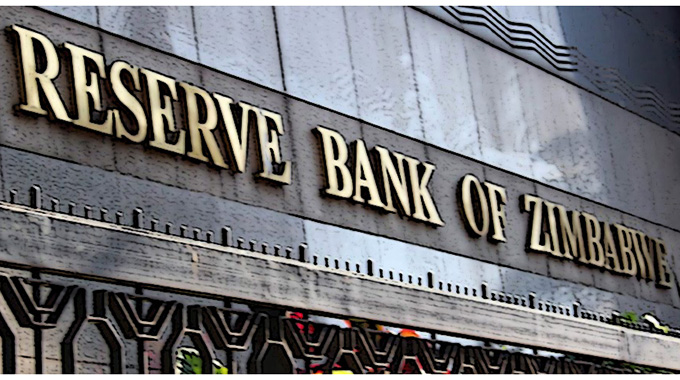Businesses face FIU wrath over illegal forward pricing

Business Reporters
The Financial Intelligence Unit (FIU) of the Reserve Bank of Zimbabwe (RBZ) will hit delinquent businesses using forward pricing to manipulate exchange rates by imposing administrative fines and indefinitely freezing bank accounts of business entities caught breaking the law.
This comes as the central bank has condemned false social media reports this week that banks were deactivating international credit and debit cards, with the commercial banks named now disassociating themselves from these social media statements.
The RBZ reports that there is sufficient foreign currency in the market to meet legitimate demands.
The double actions by the RBZ and FIU sought to end a chain of false information on social media over Mastercards, and ensure that all businesses followed the law when it came to setting prices using current exchange rates. So far as the menace of forward pricing is concerned, administrative fines and other action will be taken against the directors and owners of the companies in their personal capacities, as well as against the companies themselves, and business licences may be suspended or cancelled.
In a statement yesterday evening, the FIU said it had noted with grave concern that some businesses were engaging in illegal forward pricing thereby manipulating the foreign exchange rate. Forward pricing entails businesses quoting prices using projected future exchange rates in anticipation, either for rent-seeking or in anticipation of currency weakening, which results in steep prices beyond the reach of many and fuels currency depreciation.
“With immediate effect, the FIU will be escalating and widening remedial and punitive measures against delinquent businesses by not only imposing administrative fines but also directing that culprits’ bank accounts be frozen indefinitely and referring the culprits to the relevant authorities for the suspension or revocation of trading or operating licences and prosecution,” the FIU said.
The FIU said liability will also be extended to the directors and owners of the concerned businesses, further urging the public to report non-compliance by any of the businesses in the country.
In terms of the law, the FIU said, businesses are permitted to apply a margin of up to 10 percent above the interbank exchange rate. It said there was no justification for noncompliance with the authorised margins in light of the recent implementation of the market-determined exchange rate system.
This comes after the central bank, two weeks back, started implementing a liberalised foreign exchange regime, through a pure Dutch Auction and a pure Willing Buyer Willing Seller interbank foreign currency trading systems.
The measures allow the market to freely determine the exchange rate, which eliminates disparities between official and black-market market exchange rates, which caused registered businesses to incur some losses.
“The forward pricing and non-compliance with the legal limits is being done at the detriment of the consumers who bear the brunt of the resultant unjustified pricing of goods and services,” the FIU said.
At the same time Reserve Bank Governor Dr John Mangudya said Zimbabwe’s foreign exchange liquidity currently stands at 60 percent in both cash and bank balances held with foreign correspondent banks.
“The Reserve Bank of Zimbabwe wishes to advise and reassure the public that there is sufficient foreign exchange in the market to satisfy all needs and demands of banks’ customers. The foreign exchange liquidity position of banks stands at 60 percent in both cash balances held with foreign correspondent banks,” said Dr Mangudya said.
The central bank made it clear that the uncalled-for statements over foreign currency debit and credit cards should be disregarded and dismissed as they do not reflect the true state of the foreign exchange liquidity of the economy.
“In that regard, statements allegedly made by certain banks, and shared via social media, purporting that funds held in foreign currency account, (popularly referred to in Zimbabwe as nostro accounts) are not foreign exchange and that the said banks were deactivating the use of international debt or credit cards such as Mastercard should be disregarded.
“The statements are uncalled for as they do not represent the true state of the foreign exchange liquidity position in the economy.
“The bank has noted that FBC Bank Limited and BancABC Limited, banks cited on social media as having advised the public that they were deactivating card services, have since issued statements distancing themselves from the statements circulating on social media,” said the Reserve Bank in the statement.
This follows a widely circulated purported internal memo from FBC allegedly directing staff to deactivate direct loading from customers’ nostro accounts to the MasterCard prepaid card either by electronic means via the Oracle Banking Digital Experience Cloud Service (OBDX) or manual transfers through the branches.
The measures had also seen the termination of DSTV payments through the Mobile Moola and the USSD Code 220 platforms as the bank ordered all its branches and customer interacting touch points to stop processing such payments.
Similarly, social media rumours claimed another bank, BancABC, had also recently instructed all its agents and branches to conduct US dollar transactions against cash deposits or incoming telegraphic transfer receipts only.
This directive would, allegedly, apply to all US dollar cash withdrawals, prepaid Visa card or Mastercard prepaid deposits, City hopper bulk payments, and telegraphic transfers’ payments.











Comments